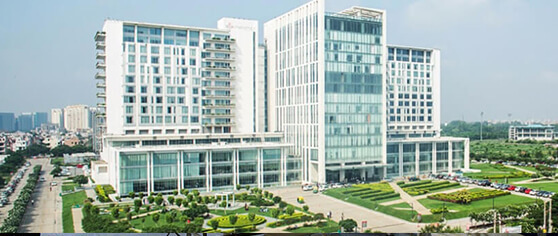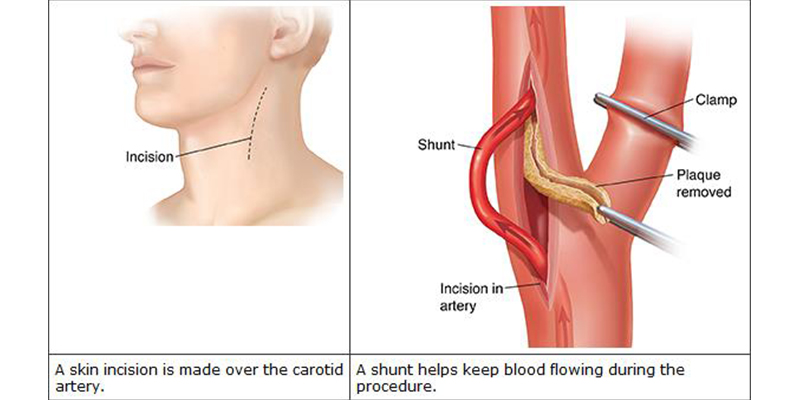TCAR - Transcarotid Artery Revascularization
Medanta-The Medicity, Gurgaon, Haryana, India
-
Our Price USD 10698
-
Hospital Price USD 11261
-
You Save : USD 563
Booking Amount: USD 1070. Pay Remaining 90% at the hospital.
- Explore benefits & save additional 30%
Additional Credit
Among the important extras we offer as part of the Additional Credit are the following:
-
Site Tourism For The Patient & Attendant
-
Airport Pick & Drop Service
-
Ambulance service at airport
-
Priority appointments with The Doctor
-
Cancel Easily Anytime with Full Refund
-
Room Upgradation
-
Free Online Doctor Consultation Valued at USD 20
-
Free hotel Stay for 5 to 7 days Accordingly
-
Welcome Kit at Arrival
-
Interpreter
-
Medical Visa Assistance
What is Included?
- Doctor consultation charges
- Lab tests and diagnostic charges
- Room charges inside hospital during the procedure
- Surgeon Fee
- Cost of implant
- Nursing charges
- Hospital surgery suite charges
- Anesthesia charges
- Routine medicines and routine consumables (bandages, dressings etc.)
- Food and Beverages inside hospital stay for patient and one attendant.
What is not Included?
- Extra Radiology Investigations
- Healthcare Professionals Charges of other consultations.
- Other Requested Services such as Laundry etc.
- Additional Pharmaceutical Products and Medicines After Discharge from Hospital.
- Management of Conditions Unrelated to Procedures or Pre-Existing.
- The cost of any additional implants will be in addition to the package cost.
Package Description
Minimally Invasive Surgery with Carotid Endarterectomy:
The operation of carotid endarterectomy is used to treat carotid artery disease. When fatty, waxy deposits form in one of the carotid arteries, this illness develops. Each side of your neck has carotid arteries, which are blood vessels (carotid arteries). Plaque accumulation (atherosclerosis) can obstruct blood flow to the brain. Removing the plaque that is restricting your carotid artery can increase blood flow and lower your risk of stroke.
A local or general anaesthesia is used during carotid endarterectomy. Your surgeon will create an incision across the front of your neck, open your carotid artery, and remove the plaques that have clogged it. The artery is then repaired with stitches or a vein patch or artificial material (patch graft) by your surgeon.
A method known as eversion carotid endarterectomy is sometimes used by surgeons. This procedure entails severing the carotid artery and turning it inside out, followed by plaque removal. The artery is then reattached by your surgeon.
Disease Overview
A narrowing of the major arteries on each side of the neck is known as carotid artery stenosis. Blood flows through these arteries to the head, face, and brain. This constriction is frequently caused by plaque buildup in the arteries, a disease known as atherosclerosis. Fatty deposits (plaques) block the blood vessels that provide blood to your brain and skull, causing stroke (carotid arteries). The obstruction raises your chances of having a stroke, which occurs when the blood flow to the brain is cut off or severely diminished.
Carotid artery disease takes time to develop. A stroke or transient ischemic attack may be the first symptom that you have the illness (TIA).A transient interruption of blood flow to the brain is known as a TIA.
Disease Sign and System
Carotid artery stenosis sometimes has no symptoms or indicators in its early stages. The disease may go undiscovered until it becomes severe enough to deprive your brain of blood, resulting in a stroke or transient ischemic attack (TIA).
The following are signs and symptoms of a stroke or TIA:
- Sudden numbness or paralysis in the face or limbs, usually on just one side of the body
- Sudden difficulty speaking and comprehending
- Sudden difficulty seeing in one or both eyes
- A strong headache that appears out of nowhere.
Disease Causes
Factors that increase your risk of carotid artery disease include:
- High blood pressure: Excessive strain on artery walls might weaken them and expose them to injury.
- The usage of tobacco: Nicotine might irritate your arteries' inner lining. Smoking also raises your blood pressure and heart rate.
- Diabetic complications: Diabetes impairs your capacity to properly metabolise lipids, increasing your risk of high blood pressure and atherosclerosis.
- Excessive fat in the blood: The building of plaques is aided by high levels of low-density lipoprotein cholesterol and triglycerides, a blood fat.
- A family history: If a family member has atherosclerosis or coronary artery disease, you're more likely to have carotid artery disease.
- Your age: With ageing, arteries become less flexible and more vulnerable to damage.
- Obesity: Excess weight raises your risk of hypertension, atherosclerosis, and diabetes.
- Obstructive sleep apnea: Stopping breathing for long periods of time at night may raise your chance of a stroke.
- A lack of physical activity: It leads to artery-damaging disorders such as high blood pressure, diabetes, and obesity.
Diagnosis
A comprehensive medical history and physical examination are likely to be the first steps taken by your doctor. A swooshing sound (bruit) across the carotid artery in your neck, which is indicative of a restricted artery, is usually heard during the test. The strength, memory, and speaking abilities of your body and mind may be tested by your doctor.
Following that, your doctor may suggest:
- An ultrasound examination of the carotid arteries to determine blood flow and pressure.
- A CT scan or an MRI scan to check for signs of a stroke or other abnormalities.
- A CT or MR angiography scan of the carotid arteries, which offers additional pictures of blood flow. A contrast dye is injected into a blood artery, and pictures of your neck and brain are collected using a CT scan or an MRI.
Disease Treatment
The goal in treating carotid artery disease is to prevent stroke. Specific treatments depend on the extent of blockage in your carotid arteries. If blockage is mild to moderate, your doctor may recommend:
- Lifestyle changes to slow the progression of atherosclerosis. Recommendations may include quitting smoking, losing weight, eating healthy foods, reducing salt and exercising regularly.
- Medication to control blood pressure or lower cholesterol. Your doctor may also recommend taking a daily aspirin or other blood-thinning medication to prevent blood clots.
Your doctor may consider removing the blockage from the artery if the obstruction is significant or if you've already had a TIA or stroke. Among the possibilities are:
Carotid endarterectomy: The most frequent therapy for severe carotid artery disease is carotid endarterectomy. The surgeon accesses the damaged carotid artery and removes the plaques after creating an incision around the front of your neck. Stitches or a graft are used to mend the artery.
Carotid angioplasty and stenting: if the blockage is too difficult to access with a carotid endarterectomy, or if you have other health problems that make surgery too dangerous. You'll be given local anaesthetic, and a small balloon will be put through a catheter to the clog's location. A thin wire mesh coil (stent) is introduced to protect the artery from narrowing again after the balloon is inflated to enlarge it.
Information related to Treatment
Package Details
Days in Hospital
3 Days
Days in Hotel
*
8 Days
Room Type
Private
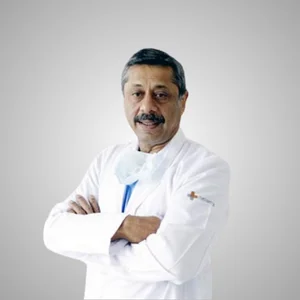
Treating Doctor
Dr. Naresh Trehan
Cardiac Surgeon- Coronary artery bypass graft (CABG) surgery, Cardiothoracic Surgeon, MIDCAB Sugery
Gurgaon, India
43 Years of Experience
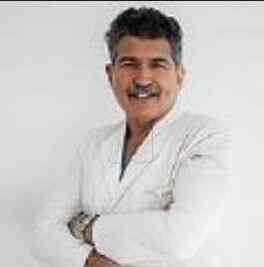
Treating Doctor
Dr. Vijay Kohli
Cardiac Surgeon- Cardiovascular and Cardiothoracic Surgery, Heart transplant and Ventricular Assist Device Implantation
Gurgaon, India
36 Years of Experience
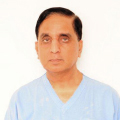
Treating Doctor
Dr. Rakesh Gupta
Cardiac Surgeon- Cardiovascular Surgery
Gurgaon, India
29 Years of Experience
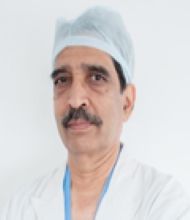
Treating Doctor
Dr. Ramesh Kumar Bapna
Cardiac Surgeon- Cardiac Thoracic and Vascular Surgery
Gurgaon, India
41 Years of Experience
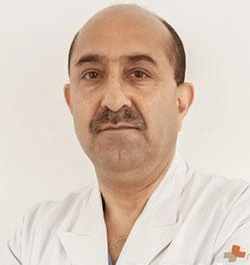
Treating Doctor
Dr. Surinder Bazaz
Cardiac Surgeon- Cardiothoracic Surgeon, Cardiothoracic Surgeon, Cardiovascular Surgery
Gurgaon, India
42 Years of Experience
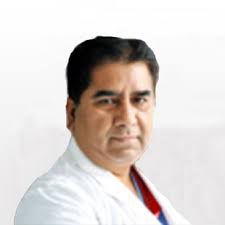
Treating Doctor
Dr. Indivar Upadhyay
Cardiac Surgeon- Aortic surgery, Heart transplant, Heart transplant, Paediatric Cardiac Surgeon, Abdominal Aortic Aneursym
Gurgaon, India
32 Years of Experience
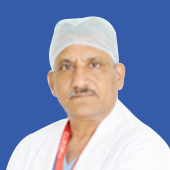
Treating Doctor
Dr. Bhuvnesh K Aggarwal
Cardiac Surgeon- Cardiovascular and Cardiothoracic Surgery
Gurgaon, India
32 Years of Experience
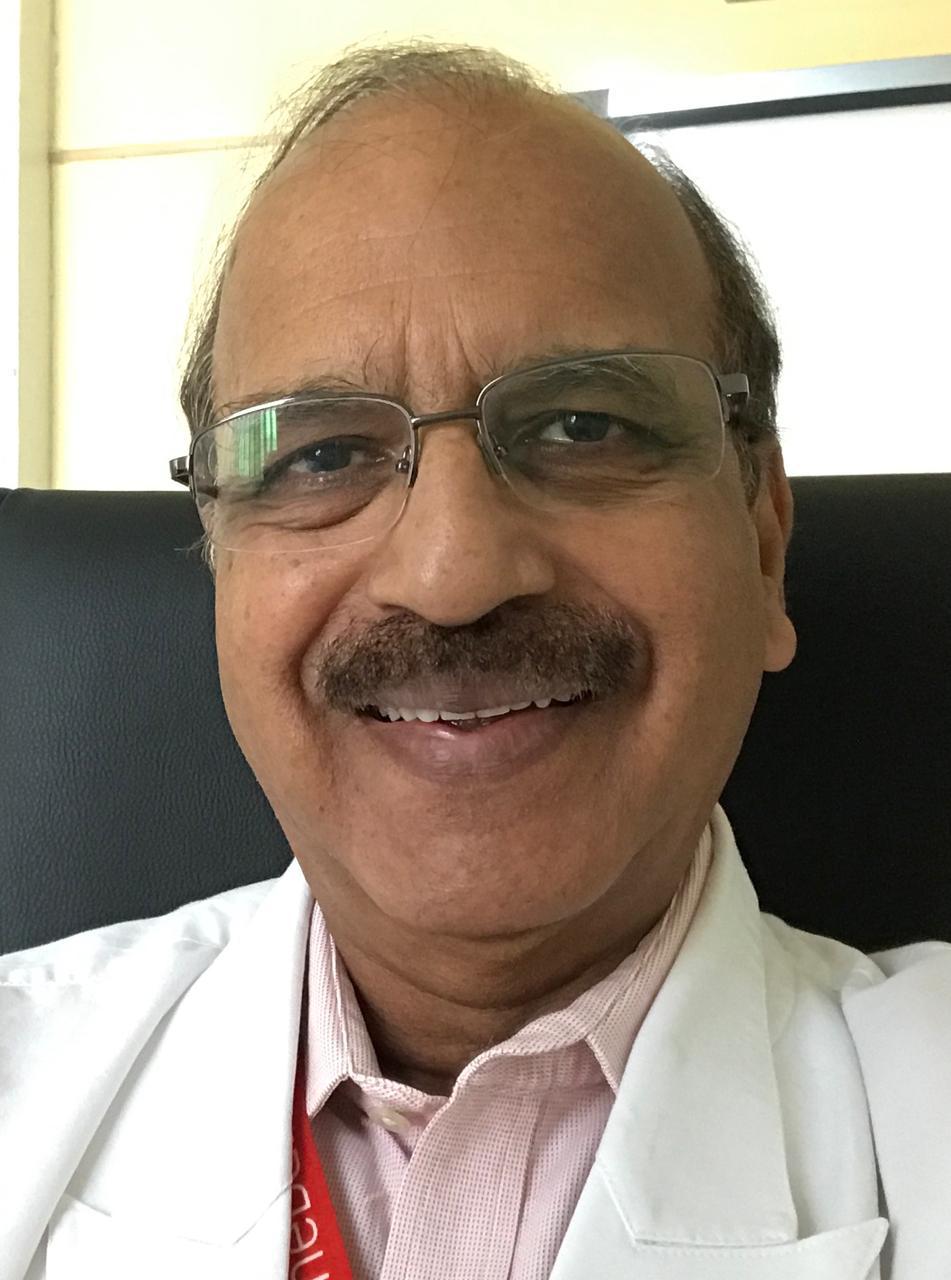
Treating Doctor
Dr. S.K. Jain
Cardiac Surgeon- Aortic surgery, Heart valve replacement, Mitral valve replacement, Aortic Valve Replacement & Repairs
Gurgaon, India
40 Years of Experience
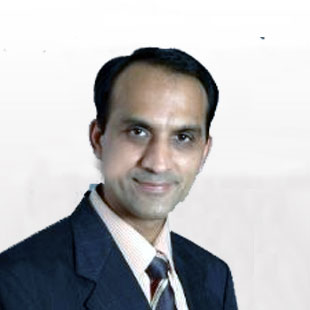
Treating Doctor
Dr. Amit Chandra
Cardiac Surgeon- Heart valve repair, Tricuspid, Mitral Valve Replacement & Repairs, Aortic Valve Replacement & Repairs
Gurgaon, India
31 Years of Experience
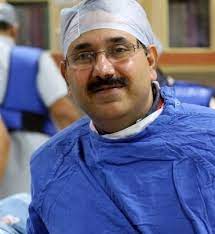
Treating Doctor
Dr. Sanjeev Kumar Singla
Cardiac Surgeon- Thoracic Surgeon, Cardiovascular Surgery
Gurgaon, India
30 Years of Experience

